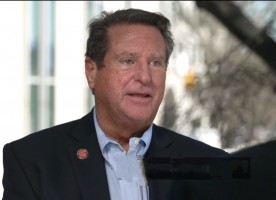The U.S. Department of Education is currently experiencing significant transformations following an executive order signed by former President Donald Trump. This order aims to dismantle the Department, thereby reducing federal oversight and returning authority to states and local communities. The implications of these changes have sparked widespread debate and legal challenges, marking a pivotal moment in the American education landscape.
President Trump has issued an executive order to facilitate significant changes within the federal government. Education Secretary Linda McMahon is tasked with closing the Department of Education without seeking congressional approval.
Responsibilities will be reassigned, with the $1.6 trillion student loan portfolio moving to the Small Business Administration (SBA) and special education and nutrition programs transitioning to the Department of Health and Human Services (HHS). There has been a 50% reduction in the Department's workforce, which raises serious concerns about its capacity to operate effectively.
The response to these changes has been swift, with Massachusetts filing a lawsuit claiming the administration is overstepping by trying to dismantle the Department without congressional approval. Advocacy groups and some lawmakers are worried about potential chaos in managing student loans, special education services, and civil rights protections. The Department plays a crucial role in distributing federal funds, such as Title I and IDEA grants, and upholding protections like Title IX, making its role essential in education.
In contrast to the opposition, other lawmakers support the dismantling effort, viewing it as a necessary step to eliminate what they perceive as ineffective bureaucracy. They point to stagnant student test scores over the years, despite increased federal spending, arguing that state and local governments are more suited to handle education policy. This perspective underscores a fundamental belief in local control over educational matters.
Lamar Alexander, a former Tennessee Governor and Secretary of Education, believes that the federal Department of Education could be eliminated, as it has had limited success in improving student progress over the past 45 years. The department serves three main purposes: producing "The Nation's Report Card" to assess student performance, addressing civil rights violations, and distributing federal education funding, ideally in the form of block grants to states. Specifically, in addressing violations of students’ civil rights. Alexander is addressing actual violations, not "disparate impacts" that have often occupied enforcement in recent years.
As the process unfolds, congressional action is required to shutter the Department completely, a step fraught with uncertainty given the intense opposition. Immediate risks loom, including potential disruptions to the Free Application for Federal Student Aid (FAFSA) system and oversight of student loans, exacerbated by workforce reductions.
Penny Schwinn's nomination as Deputy Secretary of Education is pending confirmation by the Senate. Tennessee Senators Marsha Blackburn and Bill Haggerty have not indicated how they would vote on a Schwinn nomination.
The process includes hearings, committee votes, and a final vote. As the former Tennessee Education Commissioner, Schwinn implemented various initiatives, but her record has received mixed reviews. While supporters praise her experience, critics view her as a "bureaucrat" unfit for the role. Additionally, controversies related to a contract tied to her husband and notable staff turnover during her tenure have fueled the debate.
The Republican-controlled Senate gives Schwinn an advantage in the confirmation process; however, her approval is not guaranteed due to the potential influence of swing votes from moderate Republicans and conservatives. No hearing date has been set, and possible legal challenges to Trump’s education plans may impact on her nomination. While Deputy Secretary confirmations typically face less scrutiny, Schwinn’s polarizing profile could complicate her approval.
As the situation evolves, it remains too early to predict the outcome of Penny Schwinn's nomination or the ultimate fate of the Department of Education. Stakeholders and observers alike will need to closely monitor developments, particularly those from the Senate Health, Education, Labor, and Pensions (HELP) Committee, in the coming weeks. The ongoing debates and legal challenges will undoubtedly shape the future of education policy in the United States.
##
JC Bowman is the executive director of Professional Educators of Tennessee.











